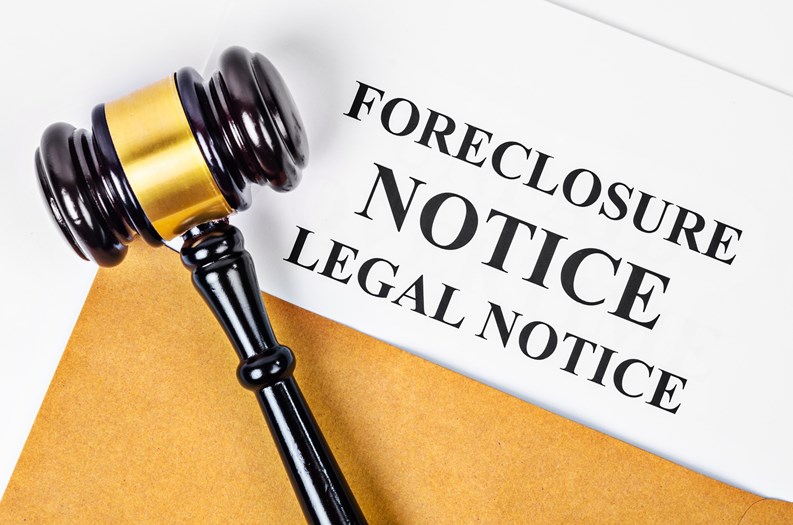In the last couple of months, The Cooperator has been covering the recent issues surrounding Housing Development Fund Corporation (HDFC) cooperatives. Among those areas of concern include co-op buildings that were threatened with foreclosure due to tax delinquency and their inability to pay for water and sewer charges. Other issues facing the HDFC co-op sector are new regulations and the possible loss of tax breaks.
In 2018, New York State Assembly Member Al Taylor of the 71st District (encompassing Hamilton Heights, Harlem and Washington Heights in Manhattan), has been holding a series of forums to address what has been described as an HDFC crisis. In previous testimony before the Housing Committee of the New York City Council, the assembly member called for a moratorium on HDFC co-op foreclosures. This coming Wednesday, Taylor is holding another event on HDFC co-op issues in which co-op representatives will have an opportunity to meet with attorneys to discuss their concerns and ask questions on behalf of their shareholders (The clinic sessions will be held at City College from 6:30 p.m. to 8:30 p.m.; see the end of this article for more details).
Meanwhile, The Cooperator spoke with Darlene Bruce, Esq., a counsel to Taylor, to reflect on the recent past, present and future of the citywide HDFC co-op community.
2018: Stopping the Bleeding
According to Bruce, 2018 was an important and busy year in the fight to protect HDFC co-ops. She recalls the three forums that were held for HDFC cooperators during that period. “The first was a case study on foreclosures, wherein Assemblyman Taylor’s own co-op successfully fought a foreclosure. They have since successfully re-filed as a co-op.”
The second HDFC-related event concentrated on regulatory agreements, which many HDFC co-ops have. A recent version of a regulatory agreement available from the NYC Housing Preservation and Development (HPD) office was reviewed by Bruce. “HPD, though, indicated at that time that they weren’t ready to publish any new versions,” she explains. “They agreed that when they are ready, they will do it in a manner that will include input from the HDFC community.We are waiting for that to happen. HPD must review the document with the mayor first before they release it. Mayoral approval is required. They’re not moving rapidly on this due to the backlash that occurred after the HDFC Coalition and others -- including our offices -- voiced their displeasure with the version HPD presented last year.”
Bruce adds that the third forum focused on corporate governance. “At that forum,” she recalls, “we spoke about what boards and directors should do to be effective, about governing documents—which they should have -- and about how boards operate.”
Both Taylor and Bruce testified before New York City Council’s Housing Committee against third-party transfers (TPTs), which allow a city-selected developer to take over financially-distressed multifamily properties. In the case of in-rem foreclosures, third-party transfers are a major problem for HDFC co-ops due to inaccurate notifications of default to HDFC shareholders and other problems. These problems have been acknowledged by all sides.
“We sent letters to HPD and City Council members,” says Bruce, “indicating that the TPT process was a faulty one. It gives TPT investors buildings without the commensurate payment of back taxes while wiping out individual shareholders’ equity, which led to the failing of these HDFC co-ops to begin with.” She suggests that rather than transferring the property to a third-party in-rem, the city should give the HDFC corporation another chance. “If you’re going to give the investor the benefit of forgiving the back taxes,” she argues, “why not give the same opportunity to the co-op? Give them the tools they need in terms of training and education to enable them to succeed as owners.”
The Cooperator had previously reached out to the press offices of Mayor de Blasio and the City Council regarding HDFC foreclosures, but did not receive a response at the time. However, there was a light at the end of the tunnel for some affected HDFC cooperators: last November, according to TheInkNYC.com, the City Council voted to remove 12 foreclosed HDFC buildings from a list of properties that were slated to go to a for-profit developer.
What’s Ahead in 2019
As mentioned earlier, Assembly Member Taylor is hosting a legal clinic related to HDFC co-op issues this coming Wednesday at City College. At this event, cooperators can meet with attorneys on a pro bono basis to talk about their issues. “They get two, 30-minute sessions, for a total of one hour of legal advice,” explains Bruce. The clinic sessions are free, and if a specific co-op wants to retain the services of one of the attorney, arrangements can be made later.
In addition to the legal clinic, Taylor will be holding hearings for the subcommittee on subprime lending during the New York State Assembly’s legislative session in Albany, according to Bruce. “After the hearings,” she says, “they will attempt to draft legislation to close the loopholes which allow predatory lenders into our community to snatch up properties from people who have lived there for many years.” This is a growing problem in areas considered untouchable years ago when these HDFC co-ops were established, but are now experiencing rapid gentrification.
Bruce says that she believes the voices of Assembly Member Taylor, the State Legislature, and the City Council will help to better educate those caught up in HDFC issues. “We are very positive about 2019.”
The HDFC Crisis: Legal Clinic event, hosted by Assembly Member Al Taylor of the 71st District, will be held on Wednesday January 16 at City College of New York, North Academic Center, Ballroom-1st Floor, Convent Avenue at 138th Street. Free. Please RSVP via email to bruced@nyassembly.gov no later than Saturday January 12.
All participants must also submit no more than five (5) questions via email to bruced@nyassembly.gov no later than January Monday 14. Questions will be sent to the attorney assigned to your HDFC, to make certain that the attorney is prepared to answer your specific questions. Prior to January 16, you will receive a call or email to confirm the time of your meeting and the name of the attorney assigned to meet with your HDFC at the Legal Clinic.
To read previous Cooperator articles about the recent HDFC issues, click on the following:
AJ Sidransky is a staff writer at The Cooperator, and a published novelist.







Comments
Leave a Comment